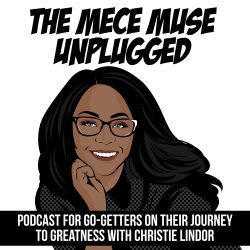AMA (Ask Me Anything) interview with Kofi Kankam, a former consultant turned serial entrepreneur. This is the 4th and final installment of our Welcome Back to Campus series, specifically focused on undergraduate and graduate students seeking to begin a consulting career.
In this episode, Kofi who is both a Harvard and Wharton MBA graduate, discusses his career journey and how he made the leap from school to consulting to entrepreneurship. Kofi co-founded AdmitAdvantage.com and launched Admit.me, both services focused on helping individuals gain admissions to the top undergraduate and graduate programs across the world.
Listen to the Episode Here:
Podcast: Play in new window | Download | Embed
Subscribe: Apple Podcasts | Email | TuneIn | RSS | More
We will be doing a segment that I call AMA, Ask Me Anything. If this is your first time tuning in, AMAs are when I have the utmost pleasure of connecting with either a seasoned or a former consultant and they give you advice. We had the chance to connect with Kofi Kankam. He is not only a former consultant, he’s now a serial entrepreneur. Kofi’s background is pretty remarkable. He is a Harvard graduate. He has his MBA from Wharton. In both of his businesses, he focuses his services specifically on helping people get into top tier colleges and universities across the world.
Some of the advice he is going to give is on how to make the best of your application and your candidacy for schools will be pertinent, not only for aspiring consultants, but also for seasoned or new consultants as well. This episode also concludes our Welcome Back to Campus series for all of my undergrad and grad go‑getters, so I hope you enjoyed it. Feel free to drop us a line, MECEMuseUnplugged@Gmail.com if you’ve got any questions or feedback or thoughts. We’d love to hear from you.
As a preview for next week’s episode, we’re going to do a deep dive. We’re going to talk a little bit about project management. If you’re in consulting, consultants primarily work on projects. That’s what we do. In order to be a great consultant, you have to have great fundamental habits of project management. We’re going to dissect that. We have a couple of seasoned experts that will talk to you next week to talk a little bit about project management, give you some specific tactics that you can use on your engagements.
For this episode, you’re going to get a special treat. I have the utmost pleasure of connecting not only with a former consultant, but also an individual who is a serial entrepreneur that’s going to give us a lot of lot of great information. I am super excited to welcome Kofi Kankam. He is the Founder of Admit.Me and Co-Founder of Advantage.com.
Interview with Kofi Kankam
Kofi, thank you so much for taking time to connect with us on The MECE Muse Unplugged. How are you doing?
Great. Thank you for having me. I’m super excited to be here. A little worried that I can’t live up to that introduction, but I’ll do my best.
This is going to be fabulous. I’m just very excited that we’ve gotten a chance to connect with you. Before we get started with the interview, maybe you can take a moment and introduce yourself to the go-getters of The MECE Muse Unplugged.
I run a company called me Admit.Me, which is like the LinkedIn for college and grad school applicants. We help candidates get into school. We’ve been doing this for awhile as an admissions coaching company via AdmitAdvantage.com. We’re helping candidates in about twelve to fifteen countries around the world every year to get into pretty much top tier undergraduate and graduate schools, business school, law school, med school, etc. I am from upstate New York and Ohio. I’m first generation American.
My parents are from Ghana. I’m married. I live in New York. I am not the athlete I used to be. I am a former consultant as well. I worked at a big five consulting company coming out of college. I studied Neurobiology at Harvard College and got a Master’s in Education from there, worked at a big consulting company, thought about what’s next for me. At the time, I was going to do an MD/MBA. I decided to drop the MD degree for fairly comical reasons, including not wanting to be broke in my twenties, on grad school campus. Then I realized when I was in business school at Penn at Wharton, I was broke in my twenties on a grad school campus riding my bike around.
That’s my background in a nutshell and I’ve done different entrepreneurial ventures. I pretty much went to business school to become an entrepreneur, continue being an entrepreneur, a better entrepreneur, and my interest is in companies and solutions in the education and technology spaces both separately and together, but I’ve been involved with a couple different things here and outside of that as well.
You talked a little bit about your journey of how you chose your major and decided to drop a degree program, and it sounded like getting experience within consulting. Maybe you can share how you decided to go into consulting in the first place. It sounds like your passion is entrepreneurship. How did you make that leap back out?
When I graduated from college, I saw a lot of my friends going into consulting. I didn’t know about it that much. It seemed like it was the continuation of college and you’ve got a chance to get paid. By continuation of college, I mean like you’re building a great network, you’re building a great skill set, and it’s a great launching pad to something more. I went to Ghana for the summer between when I was in my first year at graduate school. I was working with a doctor out there, and he was explaining to me that a lot of the challenges he faced were technological as opposed to just medical.
There were logistics issues like he didn’t have enough MRI machines. He did not have enough CAT scan machines. He couldn’t get enough trained surgeons there. I started becoming at the time equally fascinated with the business and operations of medicine as well as the science of it. Over time, I realized that I was more so fascinated with operations as a whole. It wasn’t just medicine. I didn’t just want to do that. I said, “I’ll get an MD MBA degree,” and I knew that I probably could get into a pretty good medical school, but I knew in order to get into a good business school, I needed to work for a while, for the most part.
I started thinking, “What am I interested in?” I’m interested in building great foundation, building a network, traveling a little bit around the country, a little bit around the world, getting exposed to different things because I was a science guy. In college, I was working with monkeys, I was in labs, but I never took any business classes. It just seemed like consulting scratched or checked off all those boxes and would scratch that Itch. I got into it knowing I would leave, but intending to use it as transition into business school, which I thought would strengthen my foundation to get back out there and start companies.
You saw that early and saw the window of opportunity to connect in the business and outside of medicine. That was really keen of you to figure that out really early on.
That’s just mentors. I had fraternity brothers that I saw were doing this thing. I made mistakes too, but I just listened and watched and asked a lot of probably dumb questions. I’m sure they thought I was an idiot, like how to get the information I needed to make some good decisions.
I personally think there’s no question that’s a dumb question. I know sometimes people say that and it sounds cliché, but when you’re younger, sometimes asking the right question can make a difference in the decisions you make in your life. Sometimes the innocence pays off. If you have questions, if you have thoughts, don’t just hold off and not ask them for fear. Ask those questions because the path it’s forged for you, which is great. In Ghana, you had exposure, wanted to get into the business outside of medicine, went back to school. How did you decide from there to then pivot and start your college admissions coaching services? Maybe you can tell us a little bit about that.
It’s a twofold story. One, I had been doing this for a long time. I grew up in Ohio. My high school was not a big recruiting school for a lot of top-tier universities. I ended up going to Harvard largely because there was a woman from Cleveland where I’m from who went to a pretty elite private school who came to my high school and rounded up all the top 10% of the class, freshman, sophomore, junior, and senior year, and she was black. I thought I probably was going to date her when I got the campus, but it did not work out. Basically, you should look at other schools and she convinced me to apply because 80% of my high school went to college in Ohio, Michigan or Indiana, and maybe Kentucky.
I ended up applying. She knocked on every reason why I should not consider school like I wouldn’t get in, I couldn’t afford it, and actually it’s going to be cheaper. They’ve got so much money. If they want you, they can give you scholarships. I was acutely aware of the fact that, saved by a stroke of luck, I probably never would have found my way there. Even when I was on campus, when I would come back home, my mom would always have people on my couch that were good students that she was trying to convince the look for different kinds of schools and the ones that recruited at their various high schools.
I felt like I’ve always been doing this. I was an alumni interviewer for Harvard. I live in New York. I did outreach in minority-populated schools in New York City for talented candidates like that woman did for me. I knew that this was something I was good at. I could feel innately there was a need for it and it was something that I felt I could straighten my background off of. I felt like I could have an advantage being a minority male having degrees from these schools, I felt like I could tell a story and I could be a little bit more advanced than I would be if I didn’t have those background elements. I’ve been doing this for a while. It is my passion trying to level the playing field, trying to help more people get the opportunities I got, and it just turned into a company almost. Because the secondary note is this girl I was dating, it was getting to that time where I realized “I need to probably get engaged or get lost,” and I started doing this on the side.
I had a different company coming out of school. I started with another classmate, like a job training company, and I was doing admissions coaching for a different company. I was an employee/contractor and I was doing that in order to save money for an engagement ring. At a certain point, I realized I can do this better, I can do this for myself, and I’m interested in it. I linked up with another friend from school and we decided to launch the business. I may be a little bit lucky, but it found me. I also started thinking more critically about what are businesses that I can start that use my background, I don’t need a lot of startup capital, it can immediately make money/be profitable that I don’t need any training for. This was it unfortunately, so this is all I could think of. That’s what I was good at, so I decided just to make a run at it.
What would you say surprised you in starting your coaching services company? Was there any surprises?

Yeah, there were many surprises. I thought it would probably be a little bit easier. You hear of competition and you think “I can just execute my game plan,” but I never thought about how much I need to be aware of the competition and actually be strategic. You can’t just go in and start executing. We did that. We started making money, but realized we weren’t growing at the pace we want to grow. Because our competitors were doing different things like pricing differently, letting people pay differently, having different kinds of mark in a website.
I was unaware of how am I as one of the leaders of the company, I had to keep my eyes looking outward and ears to the ground and figure out what the industry was saying. I also, on the flip side, probably underestimated the power of serving one customer well. There were a couple of customers that we had that we did a good job with, but they got into school but we didn’t focus on super servicing them. When we started saying we need to start doing this, we have customers that would give us six or seven other customers, I never anticipated it.
We were thinking so much about doing online marketing and go and speak at events that we didn’t think about the old fashioned way of how people discover your business, which is from a trusted resource. It’s almost like a band that plays like every concert matters. Because if people were happy, those people go and tell their friends and then they bring their friends to the next concert. Living that and experiencing was shocking for me.
As you talked through the surprises and earlier you were talking about following your passion and this is what you did well, but then you learned and were surprised at how understanding the competition was important as well as the power of remarkable customer service. When I think about those, they parallel consulting well. Given where you are, you’ve been doing this for quite some time, what advice would you give a younger consultant that’s just getting started in their career that’s thinking about following their passion, whether that means being a consultant in a specific industry or, like yourself, deciding to go off and do something different. You’ve been doing this for awhile, what advice would you give that person?
One, you have to go in and listen. Listening means listening to your prospective customers. It also means listening to the industry and making sure that you are not doing that anecdotally, but doing it in a pretty rigorous and robust manner in a disciplined manner, so seeing what your competition’s doing, reading industry journals, talking to your friends at these companies. If you’re working at a consulting company, looking at their cases, reading their websites, going to LinkedIn and figure out who from your undergraduate school is working there that you can talk to.
Being disciplined about that and taking those kinds of things also if you’re going to launch your own business, whether it’s consulting or something else, doing that same stuff. Also when you launch your own business, expecting it to take longer than you think, saving for a rainy day fund and also beginning to think about funnel building. How many people do you need to talk to and you need to be talking to a once? What’s your conversion percentage realistically going to be? How much money you’re going to make per person? How does that cover your expenses?
Saving money going in is going to take a long time, but also being acutely concentrated on metrics and not just thinking, “How much money did I make this month?” That’s a function of how many people did you talk to? How many are you getting those people in your funnel? How are you managing those conversations? When are you asking them to make the sale? Those are important things that are operational that sometimes “enable a consultant” who’s less talented but better at those kinds of operational things to win over somebody who’s better at their consulting craft, but isn’t better at managing the operations.
I want to go back to the Admit.Me venture that you’ve got going. Before I do that, I want to close out on the admissions coaching piece of it. In my day to day, I speak to a lot of younger consultants that are always in a crossroads. They are either thinking about doing something similar to you, following their passion, and going out into entrepreneurship or they’re thinking about going to B school or doing some higher education piece of it.
Given what you’ve been doing in the admissions coaching space, what would you say is some of the common pitfalls you may see with someone’s admissions application or their journey of how they get into school? Especially if they are coming with a consulting background, what would be some advice you would give to a younger consultant that may be thinking about going into Wharton or Harvard or another business school and given that they’ve had that consulting background? What would you say to them?
Firstly, your job performance is important. A lot of times people are so focused on the next step, like what’s after working especially once they make the decision to go to school, that they’re not focused on the here and now and doing a good job where they are. That can have huge impact in terms of their application because maybe they don’t get promoted as quickly. Maybe their potential professional recommendation has to be from your boss, maybe he or she sees a drop off in your performance. People think it’s all about just the GMAT and your grades, but the recommendations are hugely important. I’ve seen recommendations from some of these people’s bosses and the people have literally said in the recommendations that they started well and they’re good but they’re not as good as they used to be. That’s a huge issue in terms of people losing focus in where they are right now.
Secondarily, a lot of times people, consultants especially, are so worried about the fact that other consultants from their firm and from the firm’s office, their specific office, may be applying to school. They’re so focused on that being the only linchpin to getting in. They avoid lighting about personal motivations going to school, personal motivations for wanting to start a company, things they do outside of work in terms of showcasing high level of leadership and showcasing an ability to leverage with education to help other people. These are the things that schools are maniacally focused on. When you have ten consultants applying from particular office, yes, you may all have similar work experience, but it’s all the other things that I’ve mentioned that weave the narrative as to why you’re a good candidate.
Thirdly, and this applies to all applicants, but certainly consultants, is there’s a real focus on everything that they’re going to get from the school, the connections, entrees in the jobs, potential for venture capital funding. The applicant has read so much about what they’re going to take and they don’t look at it from an admissions officer’s perspective who is trying to figure out what you can contribute. Because once they’ve checked off the box of having a good GPA, a good GMAT score, and work experience being strong, there are many candidates that are like that. Most top tier schools, Ike the ones you mentioned, about 70% of the people that apply are qualified and probably about 10% to 20% are getting in.
The schools are thinking about “How can Christie make a contribution from an academic, personal, and professional perspective? How is she able to articulate her passion for school beyond just the name brand recognition, the name brand value?” Consultants can sometimes make the mistake that they just think so much what they’re going to take, they don’t think about what they’re going to contribute, and that’s what an admissions officer is looking for when they have to select between seven or eight qualified candidates for every single spot.
It’s more than just the table stakes, the GMAT and the GPA. It is also what is it that you’re bringing to the table from a contribution, but it also sounds like what is your authenticity? That’s what I’m also hearing you say, Kofi. What’s special about you and how are you going to bring that uniqueness to the institution in a way that you leave it and create impact, not only at that place but also out in the world when you finish is what I’m hearing.
If I can add one more thing. This always happens. People think about business school, consultants especially, as the next job out of school. If you ask the typical person why are you going to school, “I’m going to school to go work for this company or get a job in this field.” You’re getting an MBA, that’s 20, 30, 40 years, if you’re blessed with a long life, of career afterwards. People lose sight of the fact that they need to speak about their career or think about their career in the context of short term, medium term, long term as well as with regard to industry role/function, location, and title. They just don’t have that specificity.
They’re so focused on that first job. Whereas admissions officers and career service officers at these schools have surveyed the lumps for five to ten years out and over 50% of them, they’re on either second or third job out of school. It’s not just about what you’re going to do immediately afterwards. Schools want to see you have that long term vision, especially consultants because a lot of us have gotten exposed to different fields and so you should have an idea of what you’re thinking about doing more so than someone who may be working only in one company or one industry for three to five years after college.
I want to go back to Admit.Me. I had a chance to go online and check this out. It looks like a social network. Can you give us a little bit more about what Admit.Me is this all about?
I’m glad you said that it is a social network. It is a tool space admissions social network. We’re trying to address the issue of there being too little advice for too many students. Just look at it from a high school perspective before I get to grad school. High school to college, they’re literally about 380 students for every counselor. What you’re seeing is that the average candidates getting about two hours of admission support across all four years of high school and therefore, people that should apply to college do not apply to college. Who else should apply to four year schools or apply to tier schools? Who else should apply to tier schools? They are not applying at all, and you see also one-third of the candidates at four-year schools within like a four-year timeframe are switching schools or dropping out, and so we set up Admit.Me.

In the grad school, it is even worse in some respects because for grad school applicants, oftentimes they’re getting no support. Obviously they’ve gone through one degree or they are in a degree program, but when they are trying to make that transition, they have no support. They don’t have guidance counselors for most schools, most universities, and so what were enabling people to do is build a profile like LinkedIn. It has things like historical information, like your test scores, your grades, your activities, things you are interested in doing.
Then forward looking information like what schools you are interested in, what do you think you want to major in, companies or industries that interest you, where you want to live. You build that profile and you get free feedback on it, like annotated feedback from a current student, or former admissions officer. That is our gift to you. You get that free feedback and then you could do things like find all the people applying to similar schools, find someone who is at that school, ask him or her questions. You can use tools like a calendar tool that allows you to enter the schools that you’re targeting and then it’ll backfill all the things you need to do between now and the application deadline. You can do all that for free.
The way that we make money on that as a company is what you may not know is there’re so many graduate schools that are looking for candidates like you. It’s very expensive for colleges and graduate schools to find students and matriculate them to campus to the tune of a couple thousand dollars. I won’t tell you the school, but there is a major business school and everyone would say it is in the top fifteen, and they spend about $3 million to build a class of about 600 people, and that’s a top tier school with a global footprint.
Because the pay salaries, they send people to these graduate school tours, they pay airfare, per diem, hotels and they have to pay marketing cost, doing stuff online, sending mailers out. We’re offering a solution for those kinds of entities and then if you are inclined to get more help and more support, you can pay for a premium option like LinkedIn where you can say, “Christie gave me great feedback on my profile. I want to buy time from Christie to get help with different parts of my application, brainstorming my essays, fixing up my resume, help me prepare my recommenders, giving me a mock interview, etc.” That’s what we’re building.
I don’t think I’ve ever thought of the business school admissions process from the institution’s perspective and the amount of not only funding but level of effort. They do to find quality candidates. That’s very surprising, especially when we start saying the top ten or top fifteen, usually I thought people were running to them. They have the opposite problem, and it’s very intriguing to hear that.
Some of it is people might apply to a couple different schools, and if they get in to those schools, they always go to one school. Let’s say someone applies to Harvard or Virginia and Georgetown. Those are all good schools. If a student applied to all three of those schools and got in to all of them, most students would go to probably Harvard. The questions for top tier schools like Virginia and Georgetown, what do they do? They might get students to apply but how do you get them put their boots on your campus to actually matriculate?
Then you’ve got to think about globally, how do you get students to apply? If you’re in the states and you want to recruit a candidate from Ghana, are you going to send someone to Accra to recruit these students? How are they going to find you? Inherently some of the students that find you, there’s a little bit of bias because those students are probably well to do, they have some exposure overseas to even know that there’s a path for them to get to the campus and they figured out the path and figured it out the timing, but there’s so many other talented candidates who get tripped up on one or two of those elements.
Then you have to add in the other framework of what about women? Business schools want more women. If you look at decisions made in families for purchasing, there no shortage of studies showing that women we’re often making those decisions, but if you look at corporate America and who’s making these decisions, a lot of times it’s males. That has an added lens of people of color who are going to be the dominant group, native Americans, African Americans, Asian Americans, etc., in the States in the next 50 years. That’s not represented. It is saying my business can’t grow unless people applied and they look into schools and saying, “Who do you have here? Like where are the people that I can hire?” The schools were in saying, “I need to go out and find these kinds of people globally, women, people of color, people with certain skill sets in order to satisfy my boss as a school, the corporation, so it’s this interesting value chain.
Going back to the Admit.Me platform that you just talked through. Once a person decides that they want to use the site, they set up a profile, how long does it typically take on average have you seen for users to start to get connected into the community, start getting that feedback?
We’re cutting it down with the feedback that you’ll get a feedback within a day and a half, and we’re trying to cut that down, so it’s a couple of hours. We are still a startup in that sense, but probably by the end of the year, it’d be a couple of hours. I’m saying this in the context of you getting feedback on your profile. If you went on and you created a profile, you then can try different things, read articles, reach out to people, your peers, reach out to experts, use a calendar tool. You can do all that and you can accelerate interaction.
If you just create a profile and left, I’m saying you would get an alert within a day and a half saying you’ve gotten feedback on your profile and then you log back in. You can see almost like sticky notes on your profile. That is what takes a day and a half that we’re cutting down to a couple of hours, but if you get on there, you create a profile and you start reaching out to people, you’ll get a response. There are people on the platform now and you’d get a response back within five to ten minutes. People are interacting.
I was doing a little bit of research online and I came across the fact that you have paid off your student loans. I know that alone calls for a round of applause in and of itself. Because I know that a lot of people, whether they’re still in school or they’ve been in their career, including myself, are still paying off some of our student loans. How did you do it? Can you give us a little insight for those of us that are still on the other side of the fence? Any tips?
Firstly get old. I’m sure I’m older than you, Christie. That’s the first tip. A couple things, obviously being disciplined, paying off as much as possible. I lived like a pauper in business school. My girlfriend at the time became my wife, did not love it. She didn’t love that we lived like paupers when we graduate, but we save money. We lived in a very cheap apartment. We could have afforded an apartment that probably was 60% to 80% more than we were spending, but were we were both trying to knock off our lunch. She also got her MBA from NYU, so that was important for us to save money in that sense. I also took some calculated risks.
One of the things that I did, and this is reputable, you can do this. I was able to pay off these loans and just knock them off in one fell swoop. After years of paying them off, I was able to write a check for a low six-figure check to pay off the balance on my loans because I was involved in a startup company that I did not found. I was there pretty early, but I wasn’t the CEO and Founder, but it was just one of my sister’s classmates. My sister went to Harvard Business School and one of her classmates was interested in starting this travel company. The company went out and raised a bunch of money, tens of millions of dollars. I reached out and said, “I want to sell some of my shares in order to pay off my loans.”
The lesson from that that you can replicate is you have to network with different people in your business school class or in your college class. Just because you’re working in a certain job doesn’t mean you cannot have a taste or do different things entrepreneurially via supporting your classmates, maybe writing a little bit of a check here and there, $1,000 to $2,000 if you can do it, or just giving your blood, sweat and tears. I didn’t write any check for the sky. I was working fifteen to twenty hours a week with him on top of my current job and I ended up saying “I need equity” and that’s what enabled me to do that.
There’s an element of just being disciplined and saving your money, but it’s also being opportunistic and taking risks. Taking some risks especially when it doesn’t involve a financial investment, but an investment of your time and getting equity for it such that you then can sell some of that equity and pay off your loans. I’m not the only friend of mine that’s done that, just to let you know, so I know others have done it as well.
If I can recap real quickly, I’ve got a lot of different sound bites. I’m hearing from you, “Follow your passions.” I heard “Every concert matters.” Listening to your customers and funnel building, and then taking risks and networking with different people. Any other last remarks that you’d like to share with the go-getters?
I used to be a young go-getter then and I would spend so much time to write out my plans and goals. It’s important to do that if you have that direction but you have to be flexible. You have to be flexible, you have to be calculating, and you have to be able to adapt. I’m not great at this now, just tell you this, but I’ve got a four-year old son, and there’s something about the time management of having a child that I wish I had earlier before I had a kid. I’m looking at my time when I was in college, there was so much time I never realized. I just think you have to literally try to win every single day. Every day you have to put a brick up on that foundation that you’re trying to build and almost not go to sleep until you feel like you’ve made some progress.

That’s really important or else you’re going to look and say, “Where did that month go? Where did those three months go? Where did that six months go? Where did that year go?” If you have a goal, if you write things out, you start working, you lay these bricks, and every now and then you look and say “Are my goals right? Is my path right?” You tack a little bit to the left, tack a little bit to the right and keep going, you will begin to build yourself into the person you want to be, and the goals that you want to achieve and it will happen. My wife’s grandfather lived to 100 years, a black marine. He used to say, “The harder you work, the luckier you get,” and I believe that. I would add to that that you have to have some direction, but part of this is this is not a game that’s won on paper. You got to get out there and be active and do things and try and test and test and test.
If anyone wanted to get hold of you, what are some of the ways that people can reach out to you?
On Admit.Me, you can find me there and I’ll be your first friend. You also can shoot me an email, Kofi@Admit.me and on Twitter @TheRealKof or LinkedIn. I’m pretty accessible, although I do scrutinize LinkedIn a little bit, so no crazy solicitations. I’m out there and I love to interact, and I’m trying to give back the way people gave back to me and pour my knowledge into other people the way my elders poured knowledge into me, so it’s important to do that.
This was such a great conversation, Kofi. Thank you so much for joining us on The MECE Muse Unplugged.
I know I talked a little bit before, so I’m proud you’re doing this. It takes guts to do this. I know you got to tweak and figure it out on your own, so you’re definitely a mentor for all the people, so props to you for doing that. Thank you so much for including me on your journey. I appreciate it.
Thank you so much, Kofi. Go-getters, if you have a particular question or feedback, feel free to drop us a line, MECEMuseUnplugged@Gmail.com. I’d like to again thank Kofi for being a guest, and thank you my go-getters. This is Christie Lindor for The MECE Muse Unplugged pop-up podcast. Here’s to your journey to greatness.
Links from today’s episode:
- Kofi Kankam
- Admit.me
- AdmitAdvantage.com
- Advantage.com
- Kofi@Admit.me
- @TheRealKof – Twitter
- Kofi Kankam’s LinkedIn
About Kofi Kankam
 Kofi earned a Bachelor of Arts degree in Biology (focus on neurobiology) from Harvard College, his Master of Education degree from the Harvard Graduate School of Education, and his MBA from The Wharton School at the University of Pennsylvania, where he was a Joseph Wharton Fellow.
Kofi earned a Bachelor of Arts degree in Biology (focus on neurobiology) from Harvard College, his Master of Education degree from the Harvard Graduate School of Education, and his MBA from The Wharton School at the University of Pennsylvania, where he was a Joseph Wharton Fellow.
Prior to Admit Advantage, Kofi co-founded and successfully exited an educational software company offering job-training and preparatory material to universities and various corporations. Kofi began his career as a consultant for Accenture in New York City servicing the telecommunications space.
At Wharton, Kofi was the Chairman of the largest student-run conference, a strategic marketing teaching fellow, and co-founder of the Comedy Club. He is a former Vice President for The Wharton Club of NY, and a former interviewer and recruiter for Wharton and Harvard, respectively. He has successfully coached candidates into premier MBA and college programs since 2004 and is active in comedy, community service (through Alpha Phi Alpha) and martial arts.
Kofi lives in NYC with his wife and his ever-present knapsack of jellybeans which he has with him at all times. His goal is to eventually open and lead a jellybean factory in his native Ohio once he stops paying his exorbitant dental bills.
“The challenge of helping candidates achieve their dreams is the exact reason we started this company. There is nothing more satisfying than hearing from a client that he or she now feels that they will have a true chance to chase their goals after being accepted into a program! That’s our purpose. Period.”


